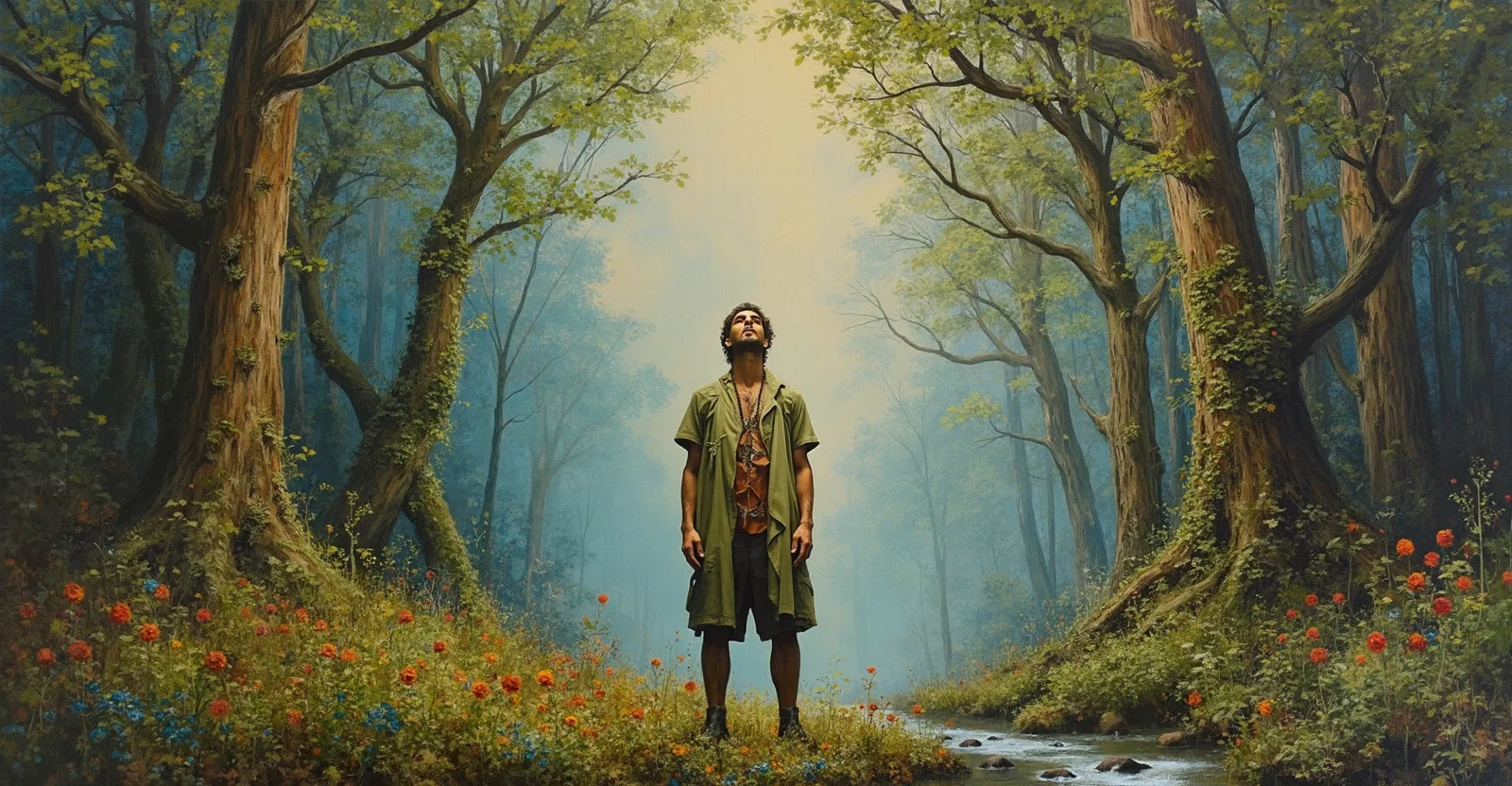Once, a human naively assumed himself to be the king of nature. King! Let him be released into the open field, face to face with the king of beasts—and I believe, to our mutual regret, there will be no debate, no diplomacy, no boundaries. Mr. Lion will devour this imaginary crown-bearer and leave not even bones behind. The scoundrel! But wait—why “scoundrel”? Let’s say the powers were unequal. Yet when the tables turn and man comes at the animal with a gun, then suddenly it’s the beast who gets labeled “predator,” “threat,” “problem.”
In the end, the so-called king of nature—who claims dominion over the very animal kingdom—is reduced to nothing more than a warm meal inside the belly of one of its smallest units. So, did the power of this boastful “king” not extend to Uncle Leo? And why not? Because the tale was silly to begin with. A delusion about hierarchy where there is only interdependence.
And I won’t even get started on what happens when other parts of this same nature push back—volcanic eruptions, floods, hurricanes, earthquakes. One puff from nature and the human kingdom folds like a house of cards.
It’s much simpler than we make it. Humans are not above nature. We are a part of it. And to go even further, I’ll risk a bold—no, brazen—assertion: we might belong even more closely to the animal world than we’d care to admit.
And what! If you say it’s clothes that separate man from beast, that argument falls apart quickly. A child knows we can dress up monkeys, kittens, and baby bears. A tutu on a pug doesn’t make it human, and neither does a suit make a man something higher.
So perhaps it’s the human ability to think? Ah, here we go again. First of all, let’s be honest: not every member of Homo sapiens chooses to engage in this allegedly distinguishing activity. Many avoid the burden entirely! And while some humans do think—true thinkers among us can feel like relics—it’s no proof of superiority. Because animals, though they may not speak in words, show undeniable signs of cognition. Science backs this up. In fact, some animals solve problems more effectively than their two-legged cousins.
What about love? Compassion? Tenderness? Surely that’s where humans reign. Sorry again. If anything, I would gladly trade places—for just a moment—with a pigeon or any other blue-winged bird. Among animals, we often find a deeper sense of responsibility for the family. The male protects. The female nurtures. Offspring are not abandoned. Show me a lion that slaps his cub out of annoyance and walks away. You won’t. And if you do, I’ll call it what it is: a cruel myth.
Then we land on the final claim: innovation. Tools. Production. Yes, humans have built machines, microwave ovens, video cassette recorders (and now, neural networks). But we’ve also created weapons designed to destroy—on purpose. You won’t find an animal who builds a trap for its own kind, just because.
In the animal kingdom, strength rules, yes—but within a framework of strict laws. Unwritten, but followed. There’s a dignity to it. No pretense. No delusion of supremacy.
And if the glory lies in labor and construction, then ants and beavers outwork many of us. They organize, build, and cooperate—no recognition needed. Just instinct, commitment, and contribution.
So, my friends, the balance shifts. It becomes entirely plausible to say the animal is, in many ways, above the human. And to those who still insist that “man”—it sounds proud!—I say: let’s earn that pride. Let’s reclaim the name “human” with honor. Let’s be human. Not by domination, but by choice.




